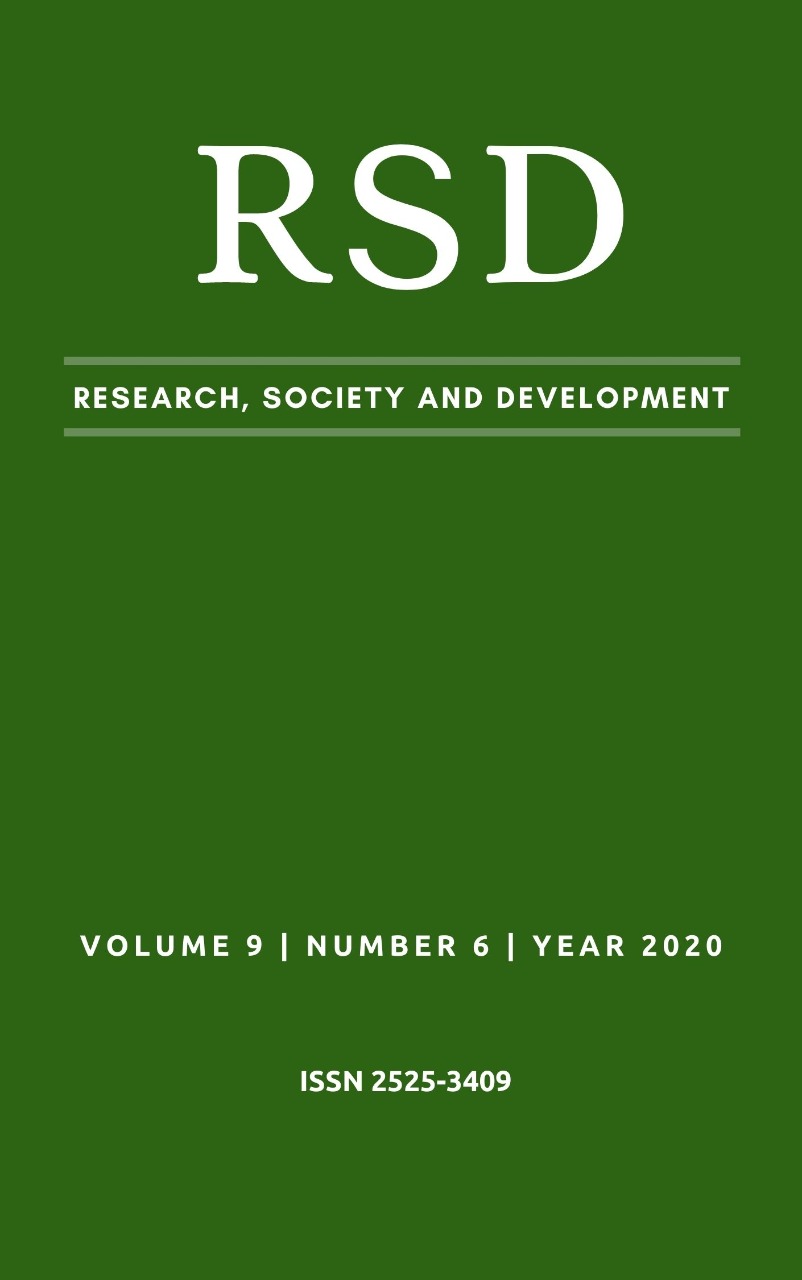Análise Sobre Persistência e Evasão Escolar em EJA: Um estudo de Caso no Município de Castanhal-Pa
DOI:
https://doi.org/10.33448/rsd-v9i6.3481Palavras-chave:
Evasão Escolar, Políticas Públicas, Metodologias Diferenciadas e Contextualizadas, Persistência.Resumo
A Educação de Jovens e Adultos (EJA) é uma modalidade específica da Educação Básica destinada à inclusão escolar de um público que foi excluído da educação durante sua infância ou adolescência. Nessa perspectiva, elaborou-se um estudo cujo objetivo consiste identificar os fatores que contribuem para a persistência e evasão escolar dos estudantes da EJA no nordeste, Castanhal-PA e propor ações para permanência dos estudantes da EJA. O lócus da pesquisa consistiu, em três escolas municipais situadas em bairros periféricos, que possuem também estudantes da zona rural. A pesquisa foi qualitativa e quantitativa, realizada com estudantes, professores, gestores e especialistas em educação. Os dados quantitativos foram adquiridos através de pesquisa in loco e os qualitativos por meio de entrevistas e questionários socioeconômicos. Dentre as variáveis prognosticadas do motivo da evasão dos estudantes da EJA na escola destacam-se as notas baixas, falta de interesse, doença, trabalho, entre outras; as variáveis diagnosticadas do motivo da persistência desses estudantes, dentre outras, foram: aprendizagem da leitura e escrita, desenvolvimento da habilidade em resolver situações-problema e a busca pela qualificação profissional. Constatou-se que as variáveis de cunho social impactam significativamente na persistência e/ou evasão dos estudantes.
Referências
Arroyo, M. G. (2017). Passageiros da noite: do trabalho para a EJA: itinerários pelo direito a uma vida justa. Editora Vozes Limitada.
Barcelos, V. (2010). Educação de jovens e adultos: currículo e práticas pedagógicas, Petrópolis, RJ: Vozes.
Bourdieu, P. (1999). Escritos de educação, Ciências sociais da educação, Editora Vozes.
Di Pierro, M. C. (2005). Notas sobre a redefinição da identidade e das políticas públicas de educação de jovens e adultos no Brasil. Educação & Sociedade, 26(92), 1115-1139.
Freire, P. (1987). Pedagogia do Oprimido. 17ª edição. Rio de Janeiro: Paz e Terra, 259-268.
Freire, P. (2008). Educação e mudança, Coleção educação e comunicação, Paz e Terra.
Freire, P. (2014). Pedagogia do oprimido. Rio de Janeiro: Paz e Terra.
Haddad, S., & Di Pierro, M. C. (1994). Diretrizes de política nacional de educação de jovens e adultos: consolidação de documentos 1985/1994.
Luckesi, C. C. (2014). Avaliação da aprendizagem escolar: estudos e proposições. Cortez editora.
Patto, M. H. S. (1987). A produção do fracasso escolar: historias de submissão e rebeldia.
Patto, M. H. S. (1997). Introdução à psicologia escolar. Casa do Psicólogo.
Patto, M. H. S. (2015). A produção do fracasso escolar: histórias de submissão e rebeldia.
Perrenoud, P. (1993). Não mexam na minha avaliação! Para uma abordagem sistémica da mudança pedagógica. ESTRELA, A; NÓVOA, A. Avaliação em educação: novas perspectivas. Porto, Pt: Porto Editora, 173.
Perrenoud, P. (1999). Avaliação: da excelência à regulação das aprendizagens-entre duas lógicas. In Avaliação: da excelência à regulação das aprendizagens-entre duas lógicas (pp. 183-183).
Pereira, A.S. et al. (2018). Metodologia da pesquisa científica. [e-book]. Santa Maria. Ed. UAB/NTE/UFSM. Disponível em: https://repositorio.ufsm.br/bitstream/handle /1/15824/Lic_ Computacao_Metodologia-Pesquisa-Cientifica.pdf?sequence=1. Acesso em: 16 Abril 2020.
SEMED, S. M. d. E. d. C.-P. (2018). Rendimento final 2013-2018.
SOEK, A. M. e. a. (2009). Mediações pedagógicas na alfabetização de jovens e adultos: ciências humanas, Positivo.
Yin, R. K. O Estudo de caso. Porto Alegre: Bookman, 2015.
Downloads
Publicado
Edição
Seção
Licença
Autores que publicam nesta revista concordam com os seguintes termos:
1) Autores mantém os direitos autorais e concedem à revista o direito de primeira publicação, com o trabalho simultaneamente licenciado sob a Licença Creative Commons Attribution que permite o compartilhamento do trabalho com reconhecimento da autoria e publicação inicial nesta revista.
2) Autores têm autorização para assumir contratos adicionais separadamente, para distribuição não-exclusiva da versão do trabalho publicada nesta revista (ex.: publicar em repositório institucional ou como capítulo de livro), com reconhecimento de autoria e publicação inicial nesta revista.
3) Autores têm permissão e são estimulados a publicar e distribuir seu trabalho online (ex.: em repositórios institucionais ou na sua página pessoal) a qualquer ponto antes ou durante o processo editorial, já que isso pode gerar alterações produtivas, bem como aumentar o impacto e a citação do trabalho publicado.


